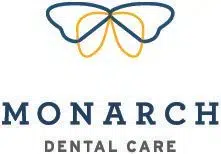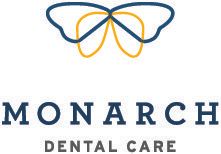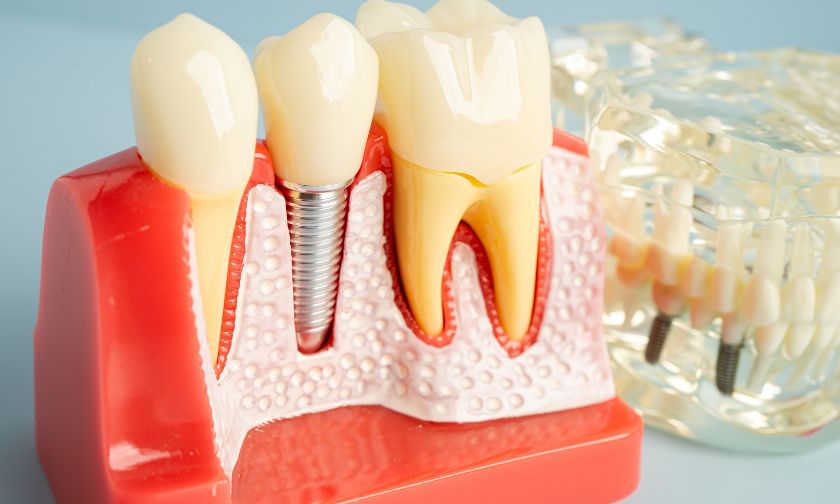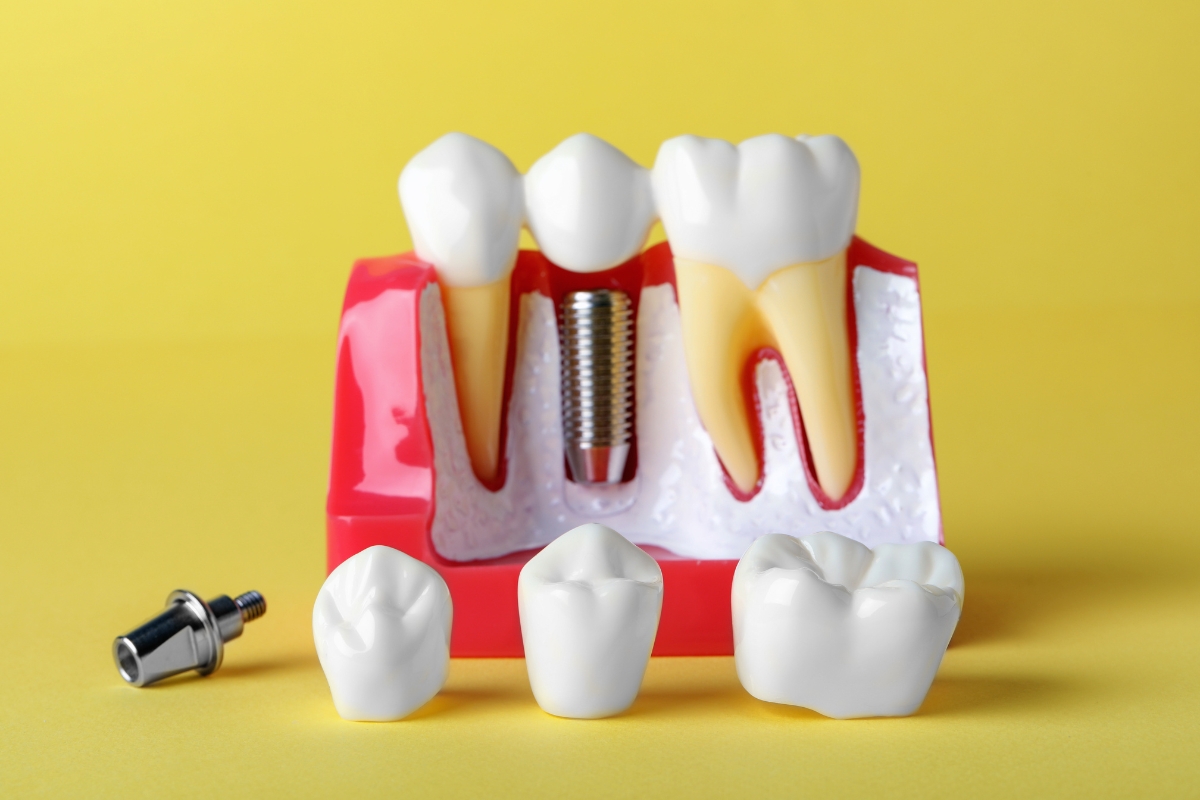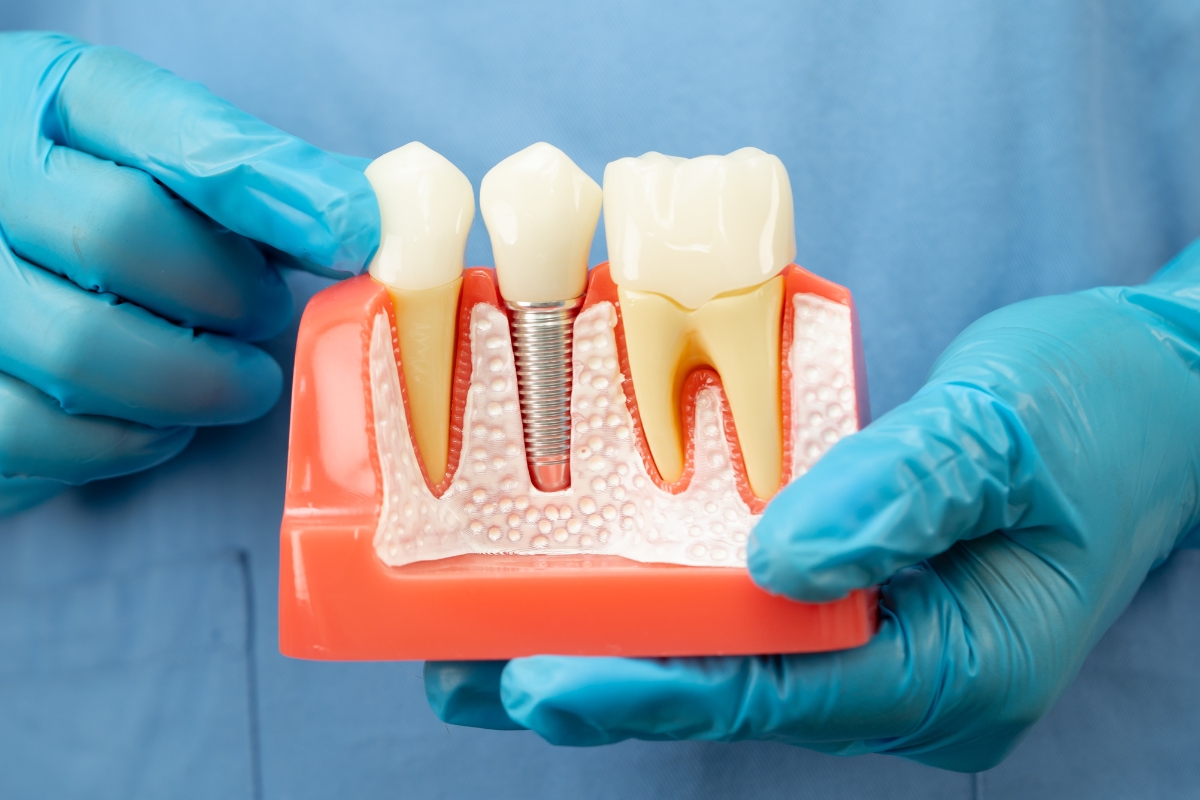
Dental implants have transformed how people approach tooth replacement. Unlike dentures or bridges, dental implants are designed to function just like natural teeth. Despite effectiveness, many patients still question the process and recovery involved, as well as how to care for dental implants in the long run. You’re not alone if you’re considering dental implants and looking for information. At Monarch Dental Care, we’re here to help clear up any confusion.
What Are Dental Implants?
A dental implant is made of a medically pure titanium post that is surgically positioned in the jawbone. It replaces the missing tooth root and forms a bond with the bone through osseointegration, a process that takes time. This integration will enable the denture, crown, or bridge to be attached to the top of it for functionality and aesthetics.
This innovative procedure helps many patients regain their smile and confidence. If you’re wondering about the longevity or success rate of implants, rest assured that implants are among the most reliable forms of tooth replacement, with success rates of 95% or higher.
Common Dental Implant Questions
The following are some of the most common questions we receive at Monarch Dental Care:
1. How long does a dental implant procedure take?
It consists of two steps: the initial implant placement and the restoration phase. This involves placing the titanium post in the jaw, which may take 1-2 hours per implant. Thereafter, about 3-6 months are required for osseointegration. Once healing has occurred, a crown or bridge will be placed after a couple more weeks.
2. Is the dental implant procedure painful?
Dental implants are performed under local anesthesia, so you will not feel any pain. Some discomfort after the surgery is normal, but it can usually be managed by over-the-counter pain medication. Most people experience only minor, temporary discomfort and complete recovery in 1 to 2 weeks.
3. How long do dental implants last?
Dental implants are long-lasting. If properly cared for, they may last a lifetime. The crown, bridge, or denture placed on top may need to be replaced every 10 to 15 years, but the titanium implant can last for decades or even longer.
4. Can I get dental implants if I have gum disease?
Depending on your case, you may need to be treated for active gum disease before implant placement. The success of a dental implant requires healthy gums and bone. Your dentist will work with you to treat the problems and get your mouth in optimal shape for the procedure.
5. How do I care for my dental implants?
Dental implant care is similar to caring for your natural teeth. Regular brushing, flossing, and routine dental appointments are needed. Your dentist will provide tailored instructions for your implant, but good oral hygiene is key to its success and longevity.
Why Choose Dental Implants in Prairie Village?
Dental implants offer many advantages over other tooth-replacement options. They are more natural-looking and comfortable, function better, and, thanks to ongoing technological and procedural advances, the procedure is less invasive and faster than ever.
Here at Monarch Dental Care, we provide the best dental implants in Prairie Village and offer customized service for each implant case, with the high level of expertise you deserve. From single to complete implant placements, we are here to guide you through the entire process with compassion and professionalism.
Choosing dental implants is a big decision, and we are here to make this process much easier. If dental implants are a good option for you, we can arrange a consultation at Monarch Dental Care. We’ll walk you through the process, answer all your questions, and help you make the right choice for your dental health.
FAQs
1. What is the recovery time after a dental implant?
Most patients experience mild discomfort for a few days after the procedure. Full recovery takes about 1 to 2 weeks, and the entire osseointegration healing process can take a few months.
2. Are dental implants covered by insurance?
Many dental insurance plans provide partial coverage for dental implants. It’s best to check with your insurance provider for specifics regarding your plan.
3. Can dental implants fail?
While dental implants have a high success rate, failure can occur due to infection, implant rejection, or insufficient bone structure. Your dentist will evaluate your individual situation to ensure a successful outcome.
4. How do dental implants compare to dentures?
Dental implants provide a permanent, natural-looking solution, whereas dentures may need to be replaced over time and require adhesive to stay in place. Implants offer more stability and comfort in the long term.
